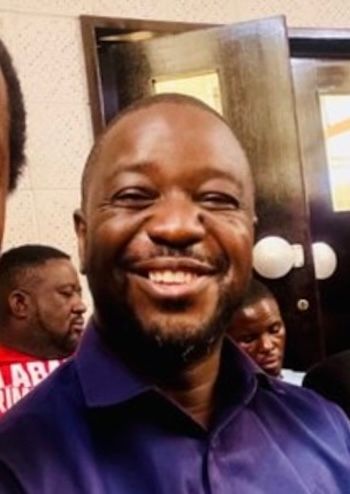Samuel Gwenzi

Summary: : Samuel Gwenzi’s arrest and year-long trial spotlighted Zimbabwe’s shrinking democratic space. As a CCC councillor, he championed transparency and civic voice—until repression struck. Though acquitted, his recall exposed political manipulation. Gwenzi’s defiant stand now symbolizes resistance, urging unity and dignity in the fight for a just, democratic Zimbabwe.
Profile: Samuel Gwenzi: A Councillor’s Legal Journey and Defiant Stand for a Democratic Zimbabwe
Samuel Gwenzi, elected as Ward 5 councillor under the Citizens Coalition for Change (CCC), emerged as part of a new generation of public officials committed to transparency, civic engagement, and responsive governance in Harare. Representing communities like Belvedere, Monavale, Milton Park, the Avenues, and Parirenyatwa, Gwenzi’s tenure was marked by grassroots connection and a bold challenge to entrenched interests.
Yet in mid-2024, Gwenzi’s political journey collided with the machinery of repression. On July 31, he was arrested at Robert Mugabe International Airport while boarding a flight to Victoria Falls—detained alongside activists Namatai Kwekweza and Robson Chere. Authorities accused the trio of disorderly conduct linked to an alleged unsanctioned protest at Africa Unity Square ahead of the SADC Summit. The arrest, carried out mid-flight boarding, shocked many—not least because Gwenzi was a sitting councillor at the time court proceedings in a bid to break us,” he said, framing the ordeal as a travesty of justice designed to derail democratic voices.
The trial dragged on for a year, with civil society and international observers closely watching. On August 21, 2025, the Harare Magistrates Court acquitted Gwenzi and his co-accused, citing insufficient evidence. The ruling was a legal vindication, but by then, Gwenzi had already been recalled from council—part of what he called “the biggest electoral heist,” where ZANU-PF allegedly hijacked CCC through strategic recalls to silence opposition.
“The baseless prosecution of the three human rights activists shed a spotlight on unjust arrests, mistreatment, and politically motivated trials in Zimbabwe,” said Idriss Ali Nassah, senior Africa Researcher at Human Rights Watch. “It shouldn’t have taken a year for the defendants to be acquitted, such cases need to end.”
Gwenzi’s reflections post-acquittal were both personal and political. He lamented the lost year—opportunities missed, lives disrupted—but also reaffirmed his commitment to the democratic struggle. “Our persecution will forever bolden our resolve,” he declared, calling for unity among progressive forces to confront dictatorship and rebuild Zimbabwe on the pillars of dignity, equal opportunity, and Ubuntu.
His case now stands as a powerful symbol of resistance in Zimbabwe’s civic landscape—a reminder that lawful dissent can be criminalized, but not silenced. Gwenzi’s journey, from council chambers to courtrooms, underscores the fragility of democratic space and the enduring courage of those who defend it
